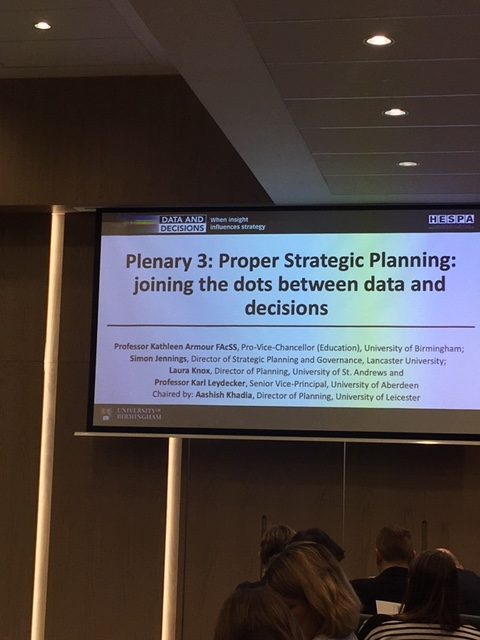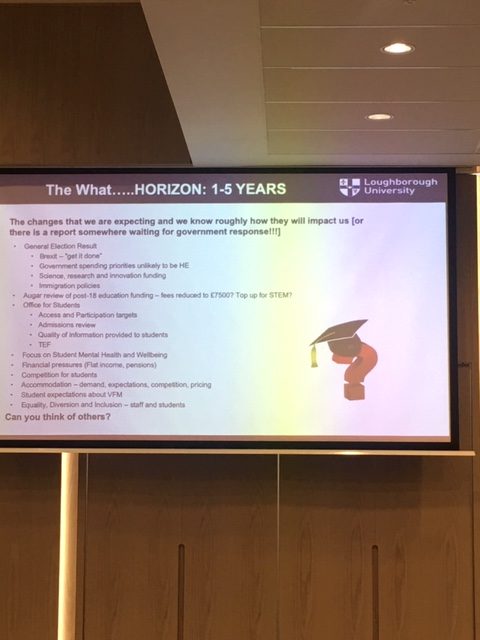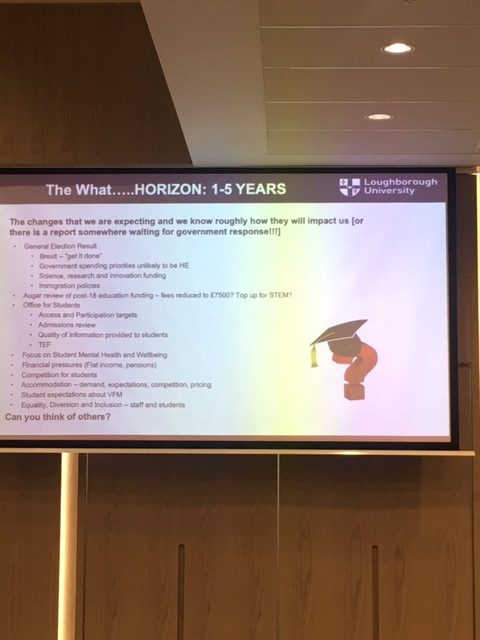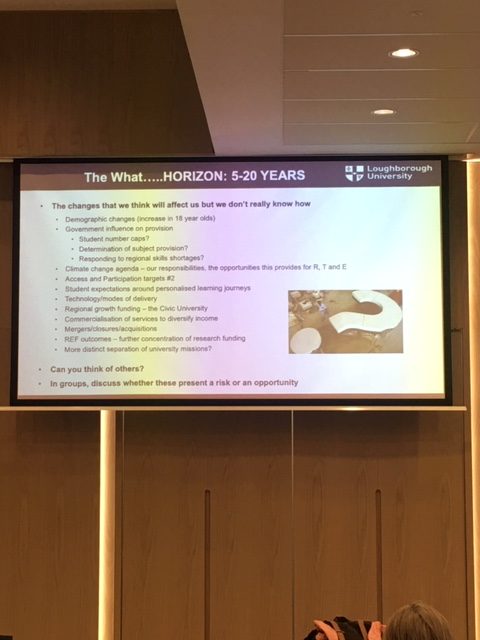Plenary 3: Proper Strategic Planning: Joining the dots between data and decisions

A high powered panel with Ash (HESPA Chair) in the Chair. Some nice anecdotes about planning team individuals working hard and often out of hours to fulfill immediate requests from VCs often along the lines of ‘what is our position’ on breaking current affairs.
Q. What does Planning do?
A. Often Estates and capital build, less frequently data, even lesser what we actually do – data underpinned evidence for decision making and strategy formulation.
The role of planning is widely misunderstood and should be addressed. Interesting I think that yesterdays plenary highlighted the role of the University itself being misunderstood and a call bring into the fold the our local communities with few of the public realising Universities do research or having never visited a University. Purdue showed us some nice public facing visualisations demonstrating breadth of activity and value.
Anecdotes about breaking the news of league table positions, NSS and presenting an analysis of the data empowering people to own the aspiration to be ‘in the top 10’ rather than a specific target / definition allowing achievement and celebration and, I guess, marketing messages. Which is a thorny issue for one of the league tables I have worked with.
The importance as a Planning Director of ‘taking the team with you’ as they will be future Directors. Ash himself is a great example of this. I chatted with his manager from a previous early career role last night attending the conference as a delegate and a presenter who was most proud of his achievements now acting as Chair of HESPA. Laura is on the panel and has worked with my team and I for some years having put her entire team through the Jisc Analytics Labs CPD offer. She highlights the importance of encouraging team members to develop and monitor their on set of KPIs as a useful exercise in empowerment and understanding.
If strategy is clear it is possible to pick the three or four most important and achievable issues. In the case of Dundee they were able to come to a collective agreement that tariff was one of these and the three most important were understood by the widest possible stakeholders. We heard yesterday from a consultancy firm who worked for 6 weeks on data governance at Aberdeen University. Their approach led to a simple matrix applied to issues of importance v achievabilty, the top right quadrant delivered exactly this.
Shorter and shorter papers that tell people more is an ongoing pressure. So highlighting the reliance on interpretation of data to decision making evidence and presumably recommendation – these latter stages seem to be least suitable to automation and require most labour intensive activity, higher skills, stuff better suited to humans than automation. SO can we automate more to free high level staff skills up to do more of this? At Jisc we are trying to do just that. We have done the heavy lift in dashboard design, development and maintenance for staff insights with a NEW PRODUCT AVAILABLE THAT WILL SAVE AND MAKE MONEY AND FREE UP HIGH LEVEL STAFF SKILLS TO DO MORE VALUABLE STUFF.
What has struck me in attending this conference is a total lack of any consideration of technology and technique disruption / opportunity. What tools and techniques are coming next for the Planning community? What’s going to hit us in the short and medium term? Come on Planners – Let’s be a bit more bold – what might we strive for here that could make a big difference? At Jisc we are kicking around the idea of a new version of our Analytics Labs unique training for development or data underpinned products for decision making. What can we do to predict? What about Prescriptive Analytics? Will we put some new emphasis on the modelling opportunities offered by Python and R? What do we need to address the ethics of experimenting on this type of data? What can we do in the area of Synthetic data? Jisc would be very happy to have those conversations with the HESPA Executive.
Workshop 9 – Planning for the unknown – the what, the when and the how
This one is group work and participation but I’ll blog what I can. Here ar esome smashing slides about PESTLE (noT here) influencers and disrupters facing Higher Education. The group work was to determine whether the below are risks or opportunities (check out the 5 – 20 years – seriously do we plan that far in advance?! Regardless, they are nice ‘current’ issues….


